Home Healthcare: EHR vs. Paper Records Cost-Benefit Analysis
VerifiedAdded on 2022/11/29
|11
|799
|281
Presentation
AI Summary
This presentation analyzes the implementation of Electronic Health Records (EHRs) versus paper-based systems within a home healthcare agency, considering its cost-benefit analysis. The assignment begins by introducing EHRs, highlighting their advantages, such as easy access, time savings, and improved data sharing and storage, while comparing them with the limitations of paper-based systems, including the challenges of accessibility, durability, and the potential for data loss. The presentation then examines the cost-effectiveness of EHRs, emphasizing the reduction in long-term expenses compared to paper records. It also addresses data security, privacy, and the need for a dedicated IT team. Additionally, it discusses the reluctance of some general practitioners (GPs) to adopt EHRs, including time constraints, the need for training, and concerns about patient interaction. The presentation also includes a cost-benefit analysis, addressing the advantages and disadvantages of both systems, with the goal of making informed decisions and improving healthcare delivery.
1 out of 11

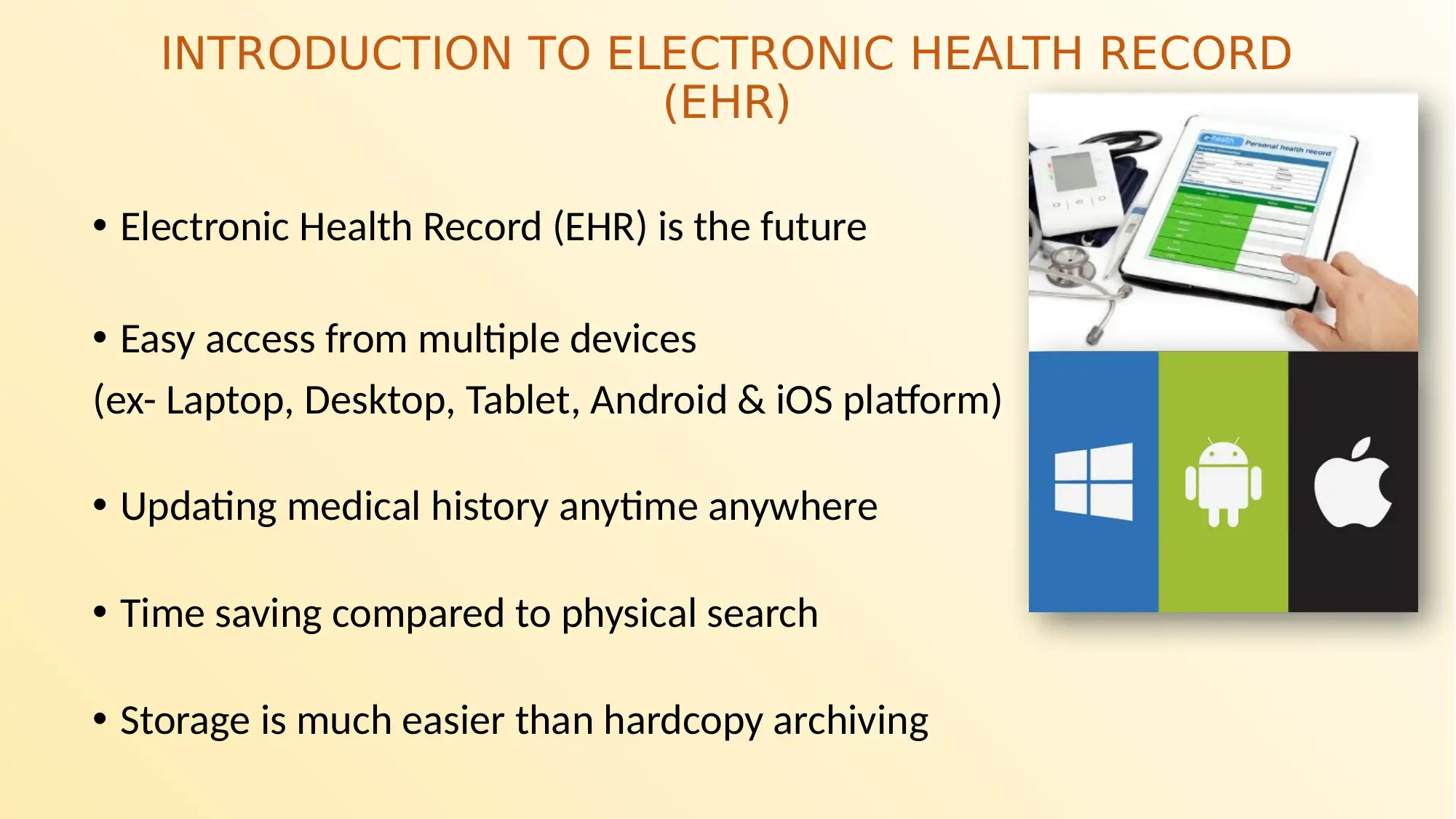


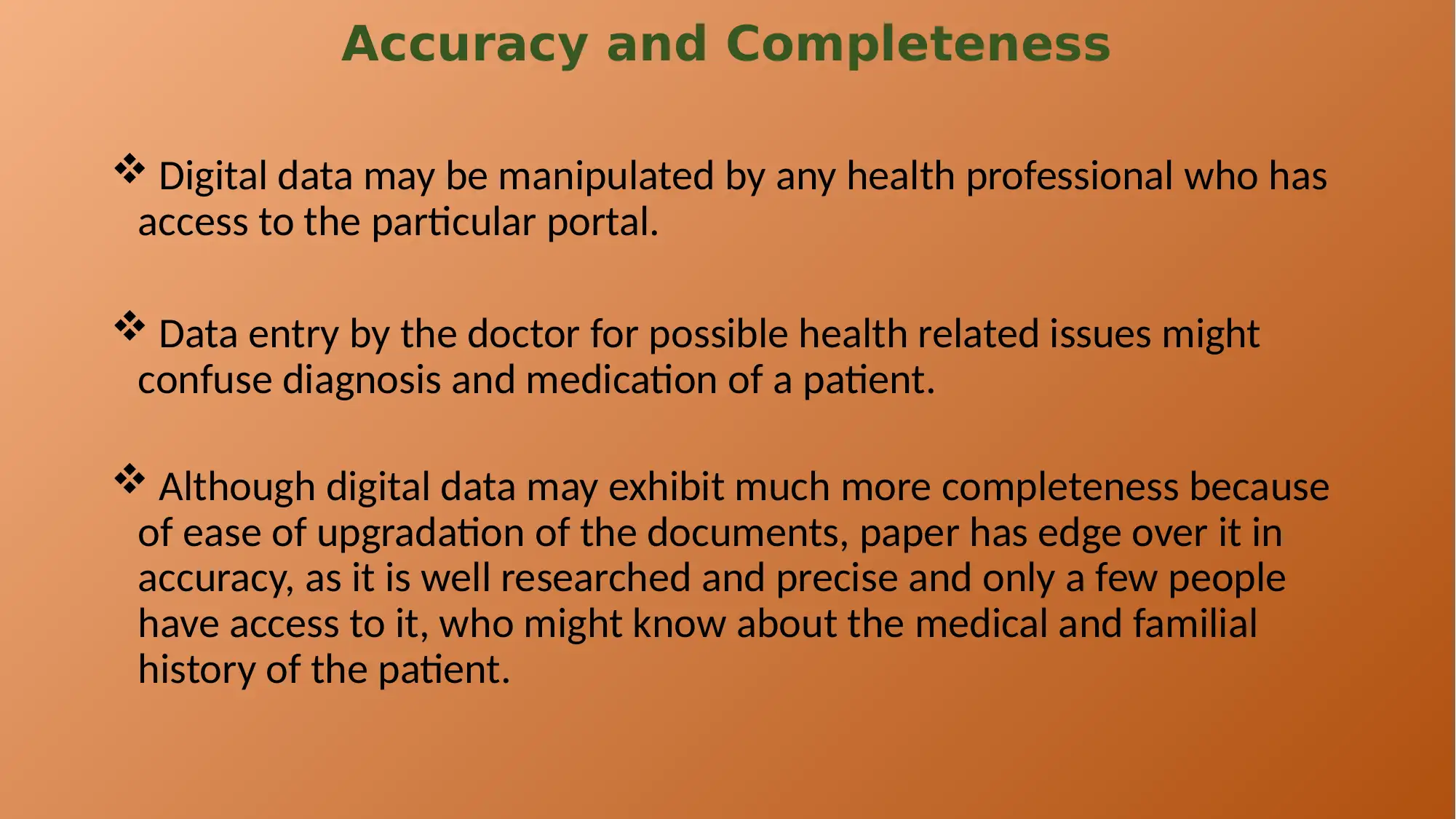
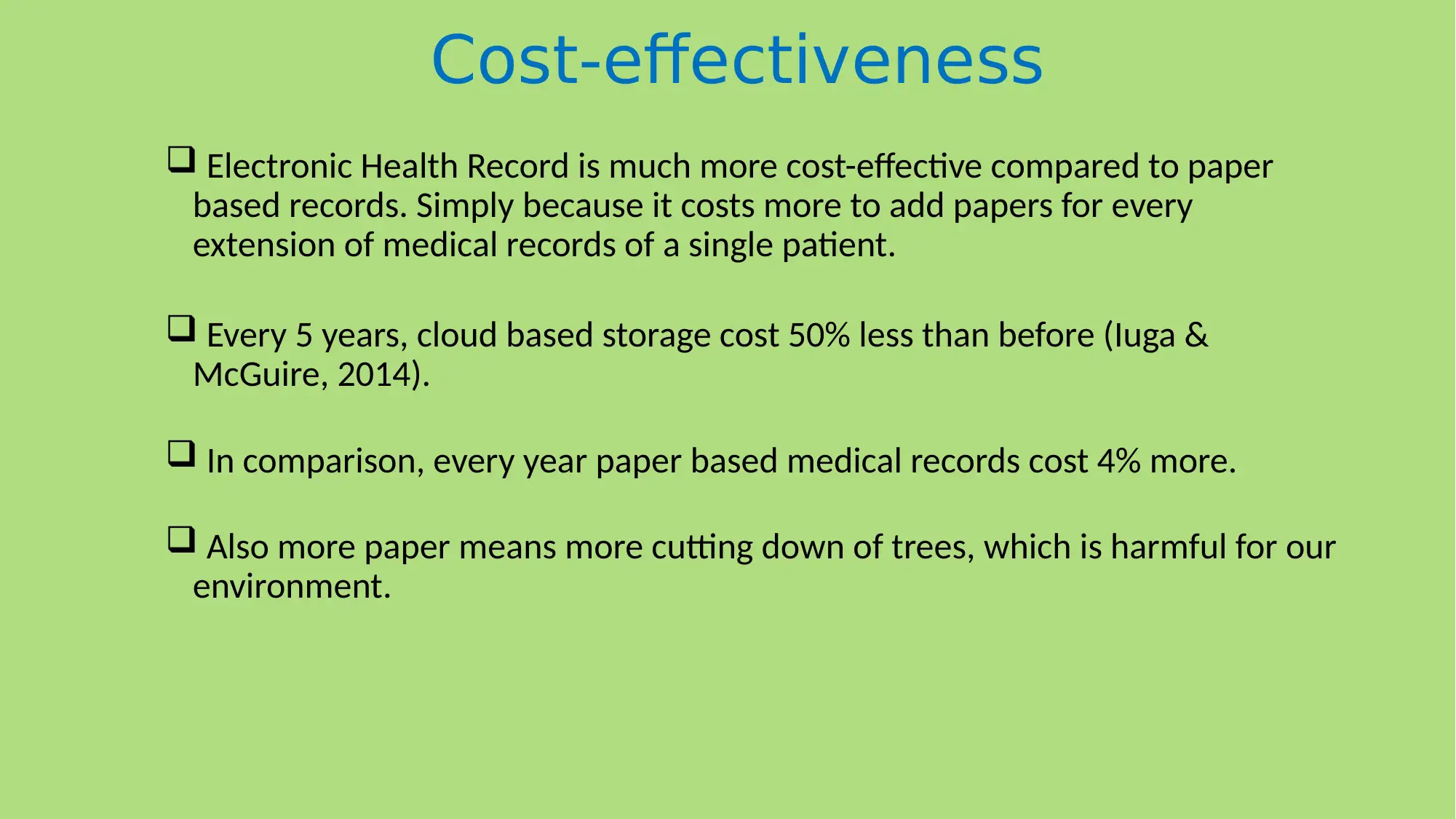
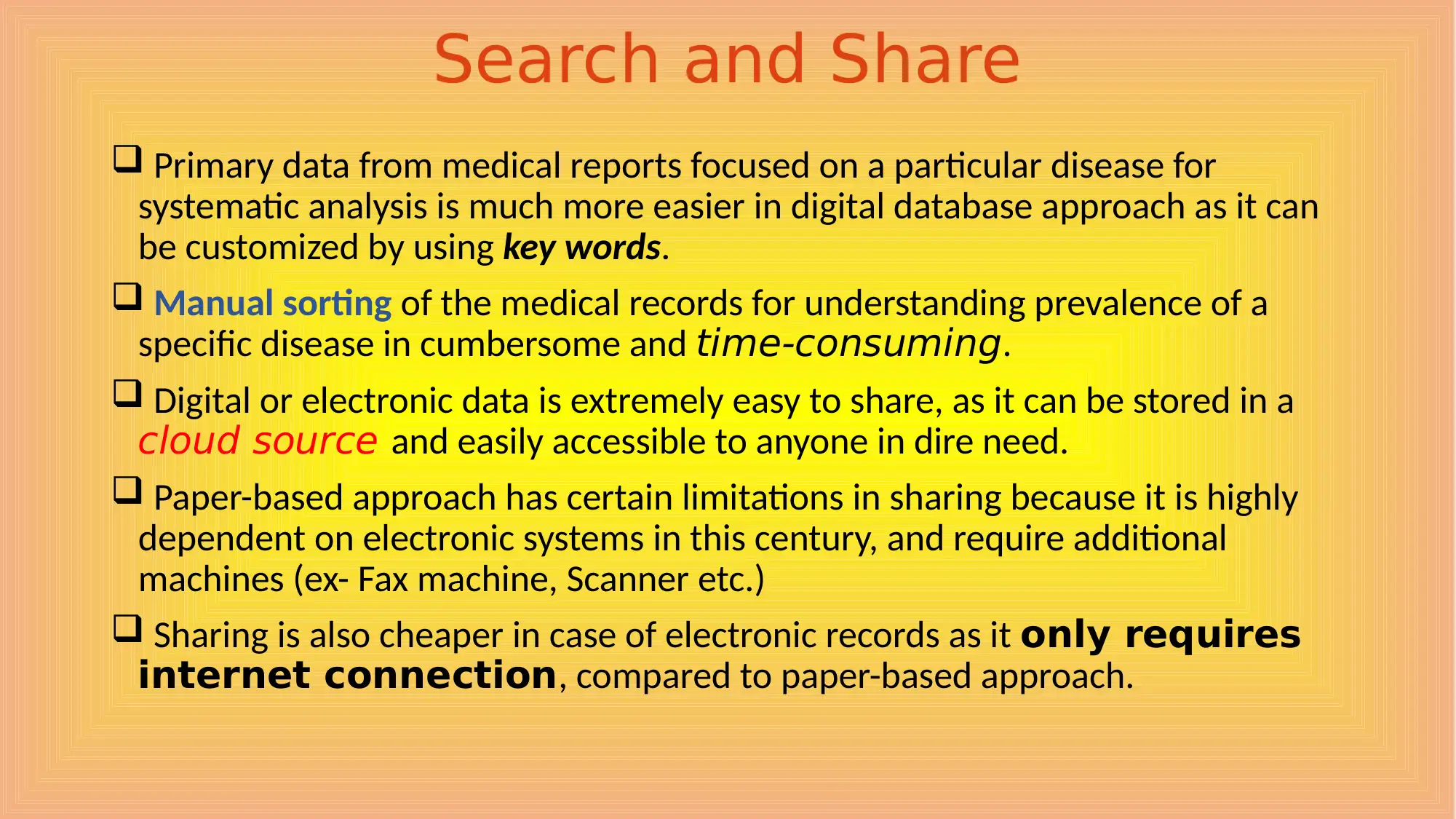
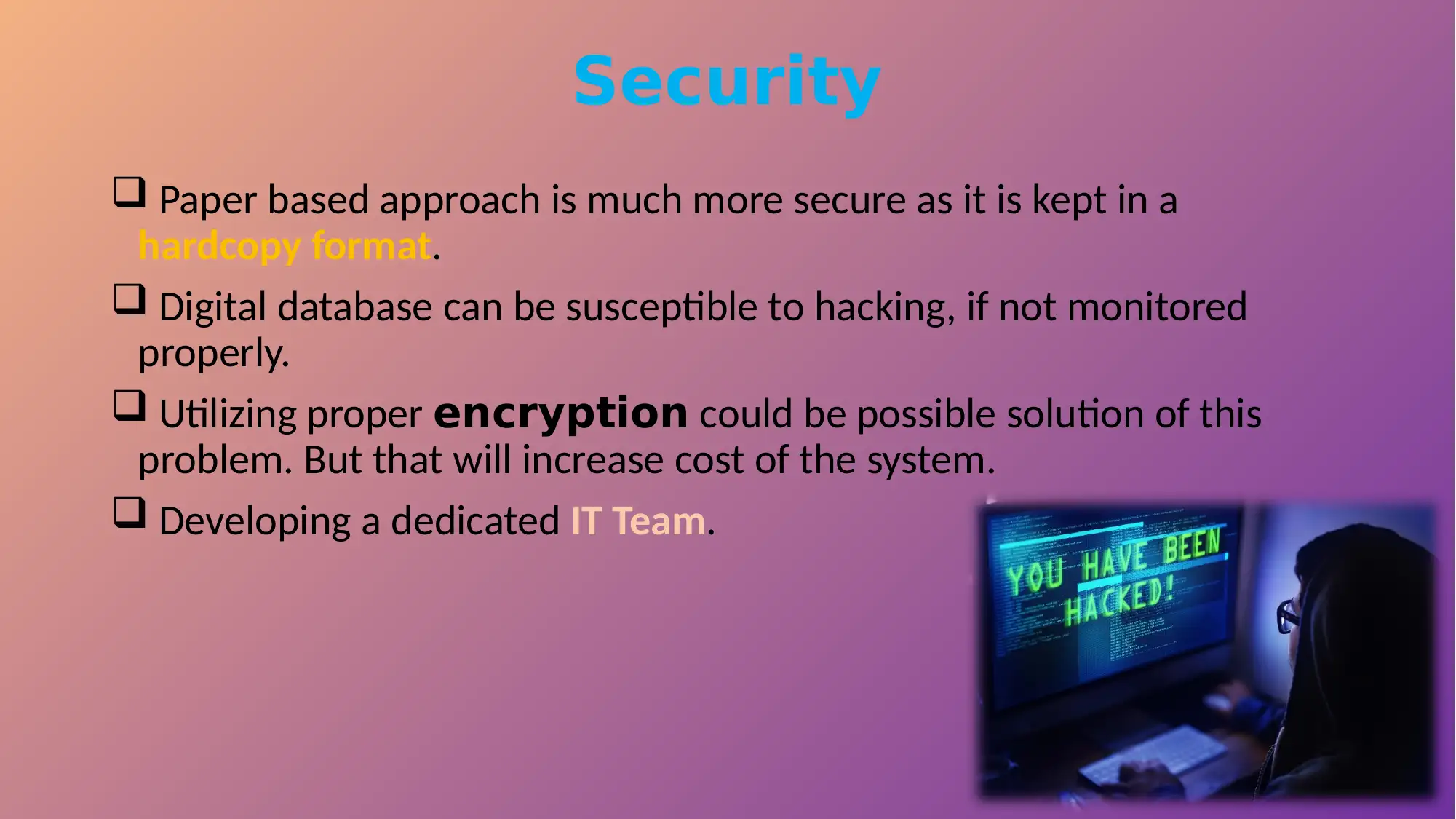
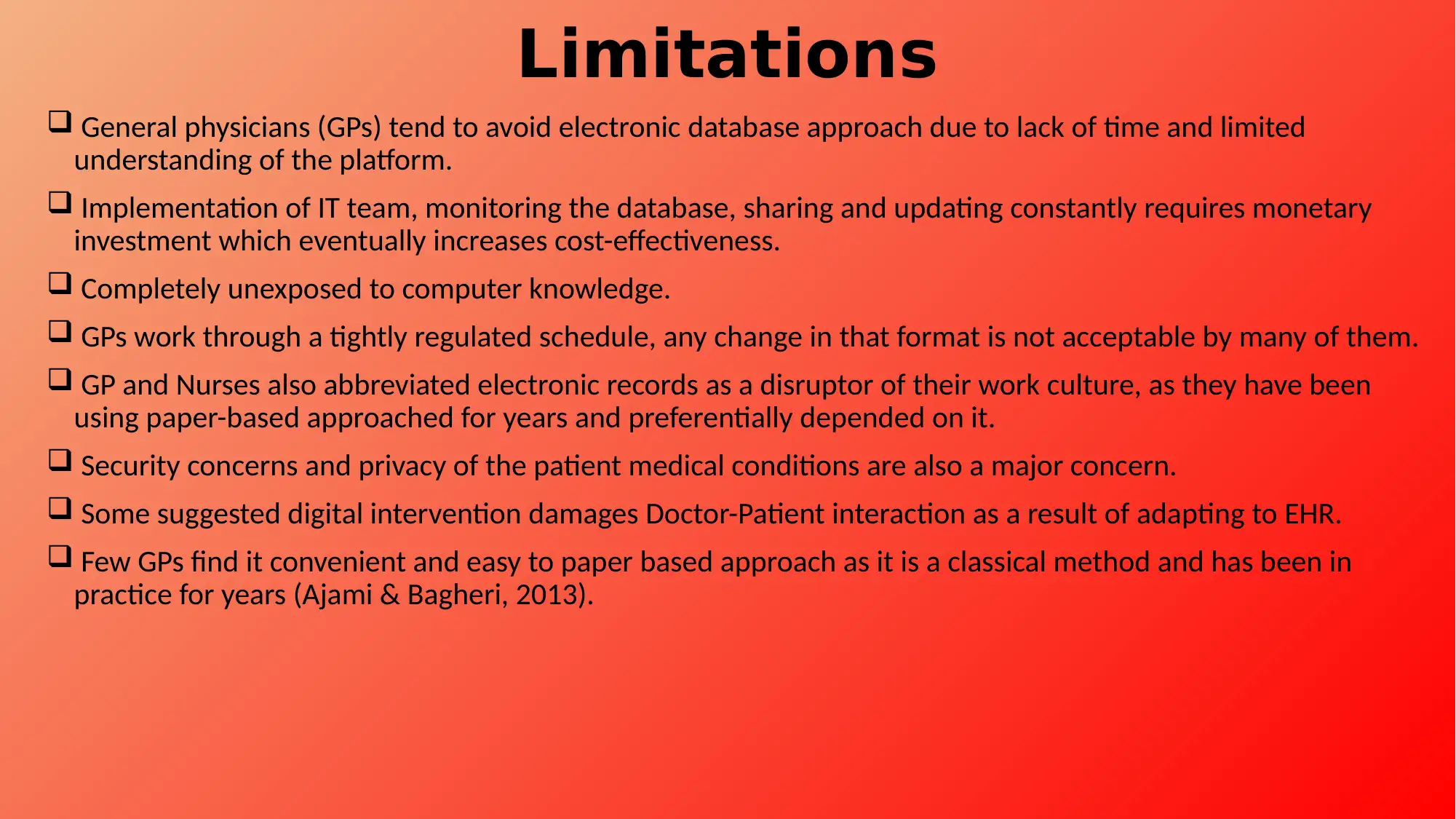
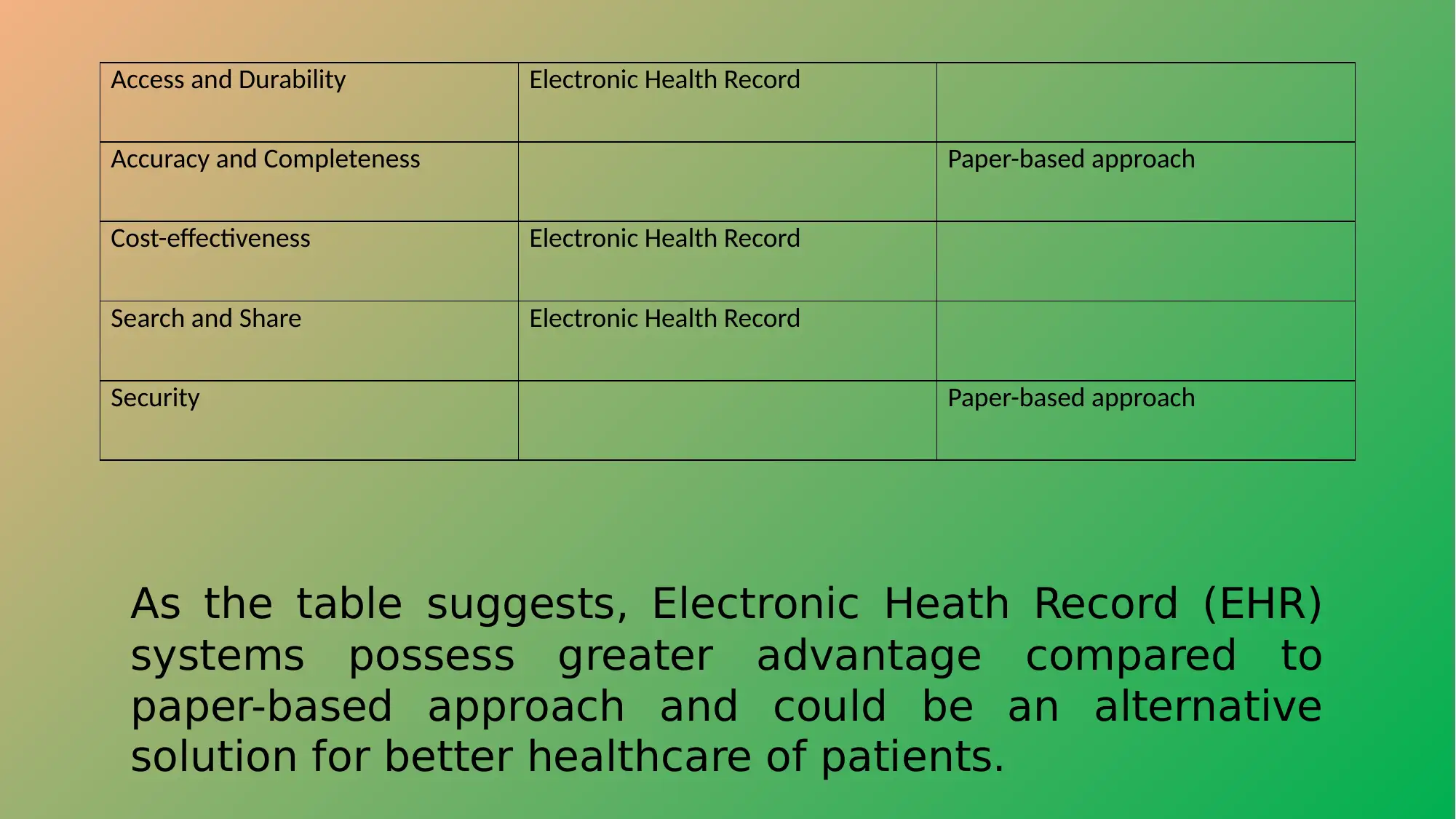
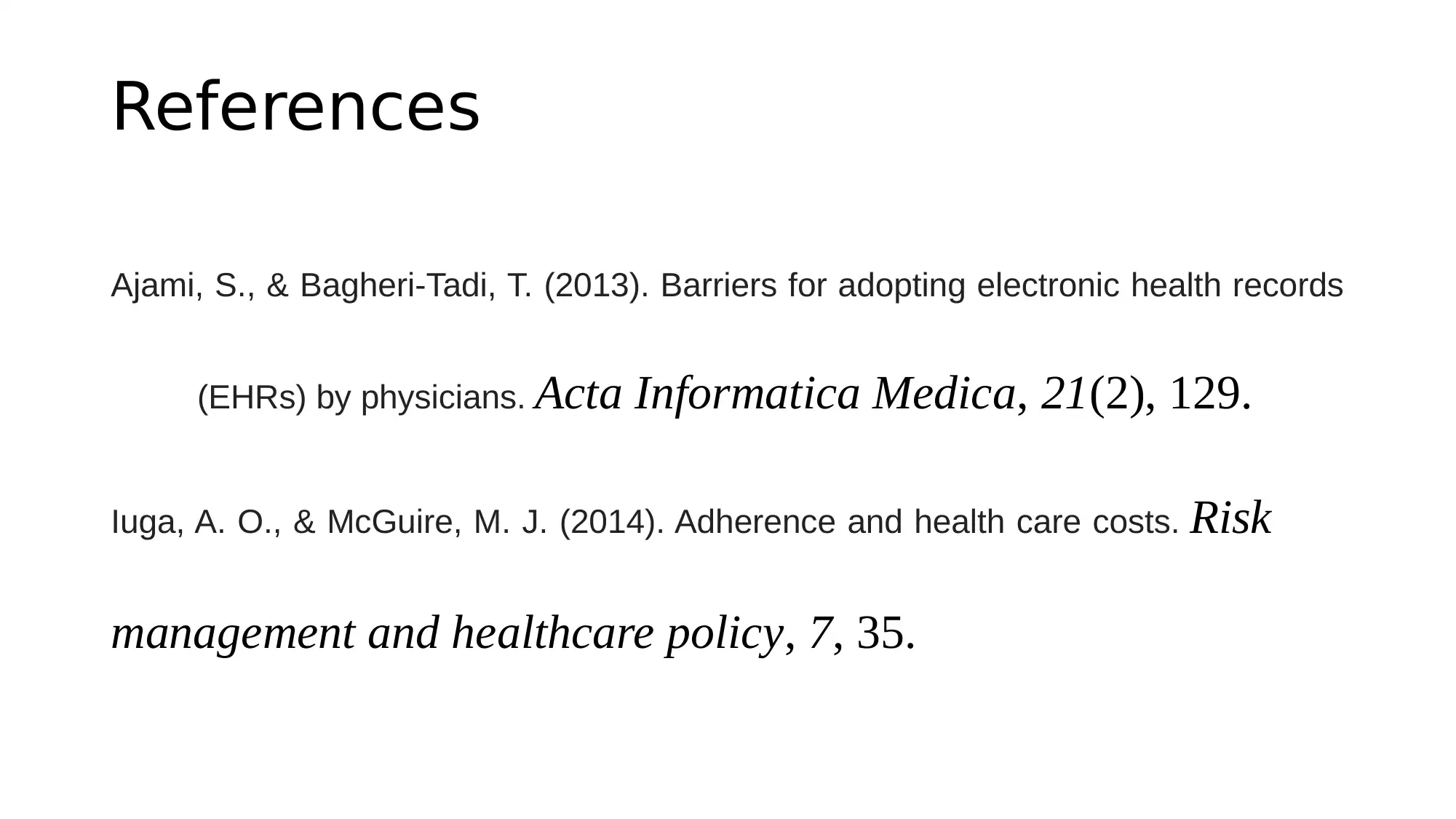







![[object Object]](/_next/static/media/star-bottom.7253800d.svg)